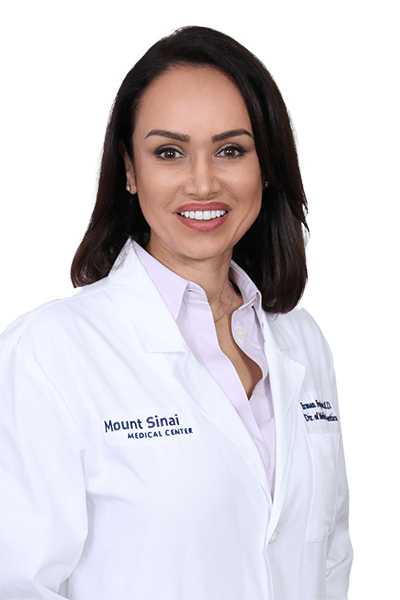Working with a Genetics Specialist
Genetic Testing
Genetic testing analyzes your DNA to identify changes, known as mutations, in your genes, as these mutations may lead to disease.
To perform genetic testing, patients will be asked to provide a sample, which can be easily collected by rubbing a swab inside their cheek or spitting into a test tube or by a small (usually 3 cc) blood sample.
For patients with certain cancers, we sometimes examine the genetic makeup of their tumors. This is known as genomic testing, and it usually refers to the genetic testing of tumor tissue. Genomic testing looks broadly for gene alterations, or harmful changes, in the tumor tissue that have a different genetic makeup than other cells in the body and only occur in the cancer cells.
Genomic testing of cancer cells is an evolving field and has proven to be a very useful diagnostic tool in cancer treatment. By detecting certain mutations in cancer cells, doctors can get a better understanding of how the cancer will respond to different treatment options, allowing them to choose the most effective and personalized treatment plan for each patient. This can make a huge difference in the outcome of cancer treatment, potentially leading to better outcomes.
What Is Genetic Counseling?
Genetic counseling refers to a counseling session or sessions with a professionally trained genetic expert who can evaluate a patient’s possible risk for inheriting or passing along genetic mutations that increase the risk for certain diseases or conditions. During genetic counseling, the genetics team at Mount Sinai meets with the patient and his or her family to gather medical history information. The data collected during counseling sessions helps determine the suitability of genetic testing and choose the most appropriate test for you and your family. Your Mount Sinai team will be better equipped to assist you with the correct information needed to make informed decisions.
During a counseling session, genetic experts will discuss risks and benefits of genetic testing, along with details about the genetic testing process. Additionally, they will discuss the emotional, ethical, and psychosocial impact of genetic testing, and provide guidance on how to deal with any potential consequences. In a cancer genetic counseling session, patients will receive information about other available risk assessment tools, cancer prevention strategies, and whether other family members face an increased risk of developing certain cancers.
Genetic counseling provides a safe space for patients to discuss the results of their genetic tests with an expert and learn about what they might mean for them and their families and how to manage possible health risks. Genetic counseling can also provide emotional support for patients with genetic disorders and help individuals make informed decisions about their health and family planning.
At Mount Sinai, our genetic experts collaborate with social workers, nurses, and other health care providers to support clients in locating the resources that best meet their circumstances and to empower patients to make educated decisions about their health.
What To Consider Before, During, and After Genetic Testing
- Gather adequate information about your family’s health history before your visit. This helps the Mount Sinai genetics team make a proper risk assessment and choose the most appropriate test for you.
- Voice any questions or concerns that you may have about your condition, genetic testing, available resources, and management options before or after your visit.
- Request a copy of your results (with clinical notes) to share with your health care providers or family if needed.
- Consider sharing your genetic testing decision with family to prepare them for potential impacts.
- Health insurance plans do not always cover genetic testing. Discuss your concerns about insurance coverage with the Mount Sinai genetics team before getting a genetic test.
- A positive genetic test result does not guarantee you will become sick if you are currently healthy. Likewise, the absence of a specific mutation does not ensure you will not develop certain conditions.
Our Physicians
Irman Forghani, MD, FACMG
Director of Genetics at Mount Sinai Medical Center
- Medical Genetics
- Cancer
- Mount Sinai Medical Center (Main Campus)
- 305.535.1859


